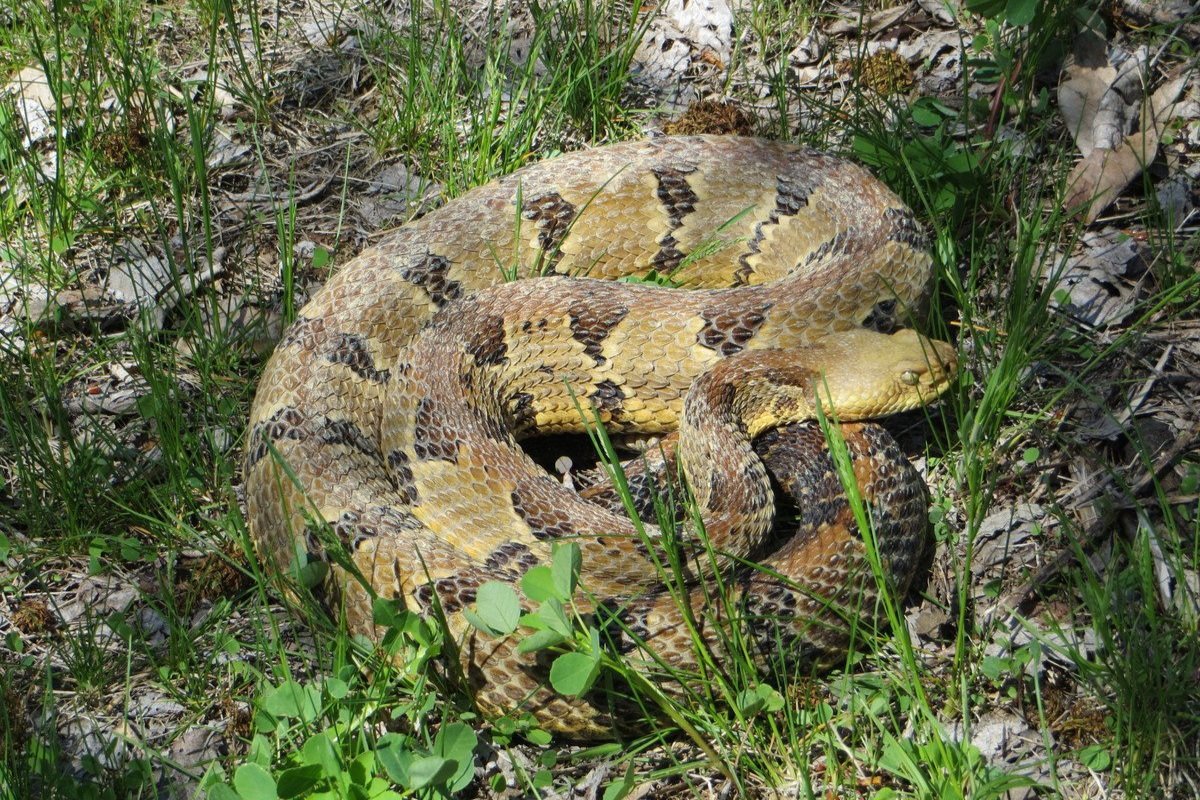
Living With Snake Neighbors
If you find a sick or injured snake, contact a wildlife rehabilitator for help!
Snakes are often misunderstood and can elicit fear in many people. It’s important to remember that snakes are more afraid of you, than you are of them! These important pest-control members of our wild world need our tolerance, even if they are not our most favorite creatures.
Are Snakes Harmful to Humans and What Should I Do if I See One Near My Home?
Snakes are naturally timid animals and tend to avoid encounters with humans whenever they can. When humans and snakes interact, the snake is likely just as scared of you. Sightings are not a cause for concern, and snake bites rarely occur unless a person is attempting to handle the snake. Plus, there are only three venomous snakes out of 21 native Pennsylvanian species. Overall, snakes are generally harmless and perform essential functions for the ecosystem.
How Do I Remove a Snake From Inside My House?
Snakes can accidentally enter homes or intentionally seek out rodents within them. If a snake is found in a home during late fall or winter, they need attention from a rehabilitator. In contrast, if a snake is found in your home during the spring or summer, you can capture and release it outside. Snakes will follow prey into buildings, so check the area where you found the snake for rodents like mice.
How Do I Get a Snake Out of My Window Well?
Place a board or thick branch into the well at an angle, allowing the snake to exit on its own. Once it leaves, you can cover the well to prevent it from happening again.
What Do I Do if I Got Bit by a Snake?
There are three venomous snake species in Pennsylvania: Northern Copperhead, Timber Rattlesnake and Eastern Massasauga.
Northern Copperhead
Timber Rattlesnake
Eastern Massasauga
If a non-venomous snake bites you, treat the wound like any other puncture wound that can get infected. Clean the wound, and consult a physician.
If a venomous snake bites you, call 911 immediately and go to the hospital. The bite victim should remain as calm and inactive as possible to slow the spread of the venom. Do not cut open the wound or suck the venom out. If a pet is bitten by a venomous snake, go to the closest veterinary hospital. Try to keep your pet calm and inactive. Visit the CDC’s website for more resources about venomous snakes and human health.
If you’re unsure the type of snake that bit you (many can look similar or appear different as they age), take a photo of the snake and contact a professional.
Do you still have questions after reading the information above? Contact us or a local wildlife rehabilitator!
Have you found this FREE information helpful? Help support our work and expand our services by giving a gift.
Resources
Answering the Call of the Wild by Erin Luther. Toronto Wildlife Centre
Human Wildlife Conflict Resolution Guide. The Humane Society of the United States
Pennsylvania Herp Identification. https://www.paherps.com/



